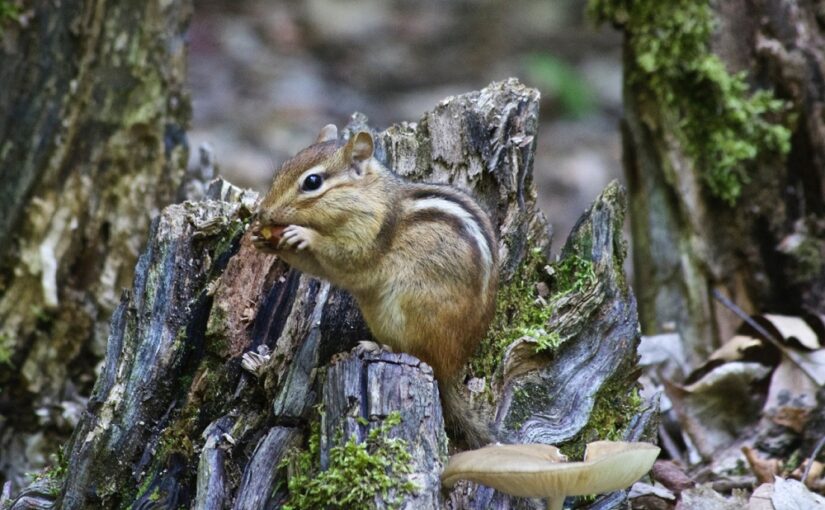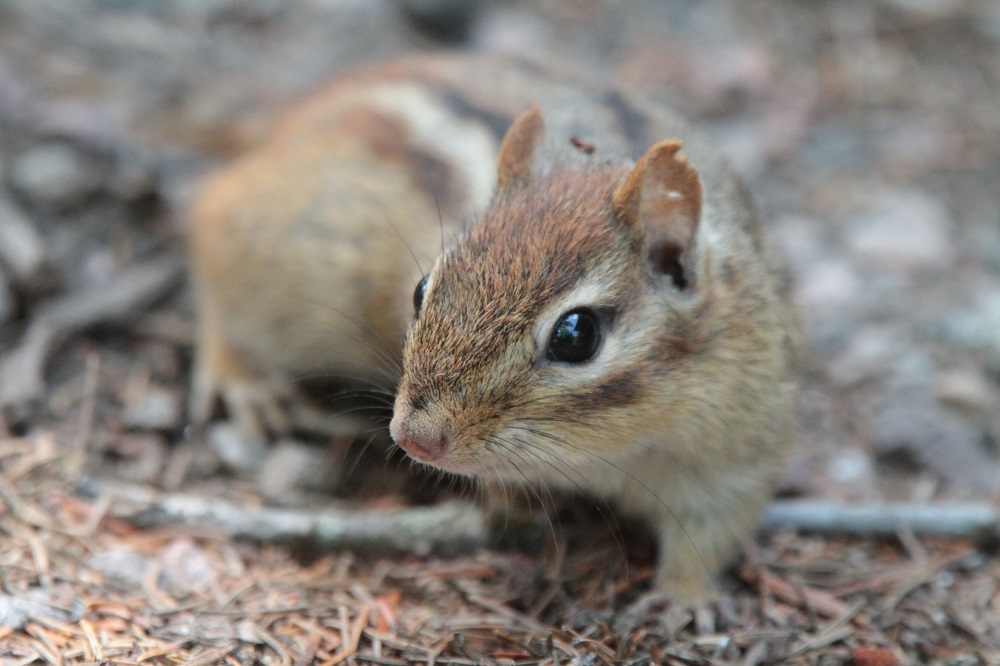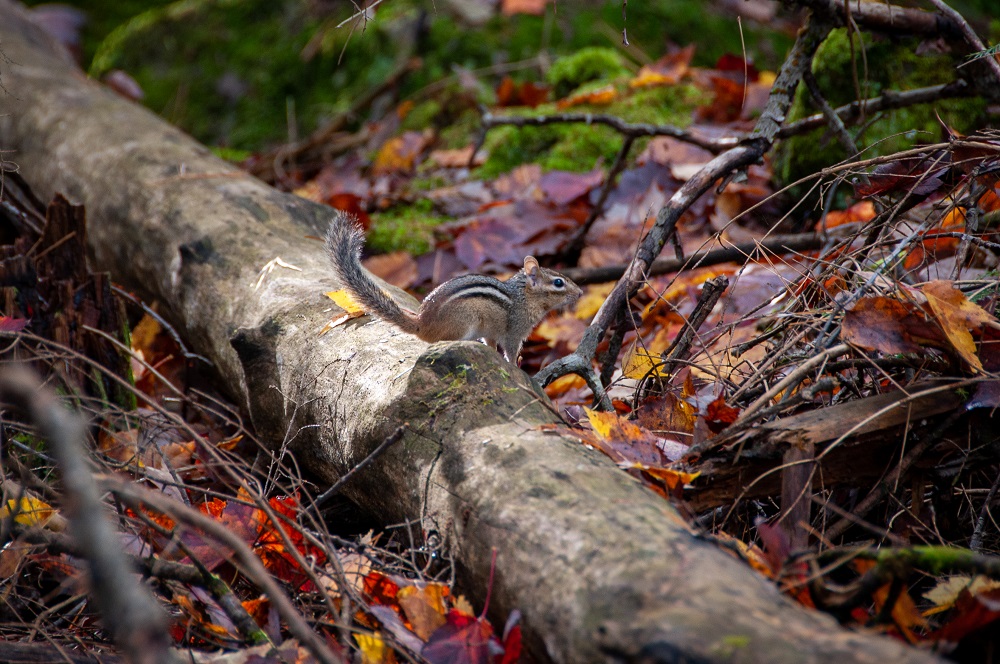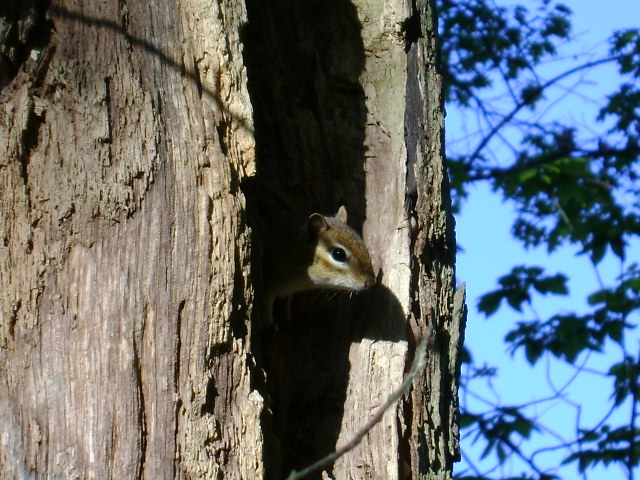Today’s post comes from Gabriel Argenti, a Discovery Student at Rondeau Provincial Park.
As winter approaches, most wildlife undergoes seasonal changes or new habits.
Some animals prepare for the cold by storing food away, going into hibernation, eating to gain weight, growing a thicker coat. Others migrate south to warmer climates to wait out the season.
Let’s take a look at one animal in particular, the Eastern Chipmunk (Tamias striatus), and see how they make it through the coldest time of the year.
Preparing for winter
The den of a chipmunk isn’t just your average hole in the ground.
Chipmunks dig these dens to be anywhere from 45-85 cm deep with the main nest chamber at the end of the tunnel, complete with insulating materials such as grass, leaves, and other materials to create a comfy nest.
Starting in the very late summer and throughout the autumn, chipmunks begin to collect nuts and seeds for food and store them for winter in their dens or other hidden stashes they have handy.
A chipmunk can gather up to 165 acorns in a day and in only two days, a chipmunk can collect enough food to last an entire winter!
However, chipmunks typically hoard much more food than necessary.
Time to get cozy!
Once the chipmunk has stored sufficient food and made the proper preparations, they retreat to the comfort of their den and enter a hibernation state.
However, this type of hibernation (called torpor) is more of a nap compared to other species that truly hibernate for many months, such as groundhogs or bats.
While in this torpor state, the heart rate of a chipmunk can slow down drastically — dropping to about four beats per minute from an average of 350 beats per minute!
The body temperature, breathing, and metabolism of the chipmunk is also lower during this time.
It can get chilly in the den of a chipmunk, even with all the insulation and warm materials they collected. So chipmunks wake up every few days to warm themselves and their den up to stay comfortable.
Once they wake up, chipmunks will also take the time to eat more food from their storage. On occasion, they will leave their den — if they need to get to another food storage den or go to the bathroom.
Once warmer weather comes around in the spring, they wake up for good and continue on like they usually would for the rest of the year.



